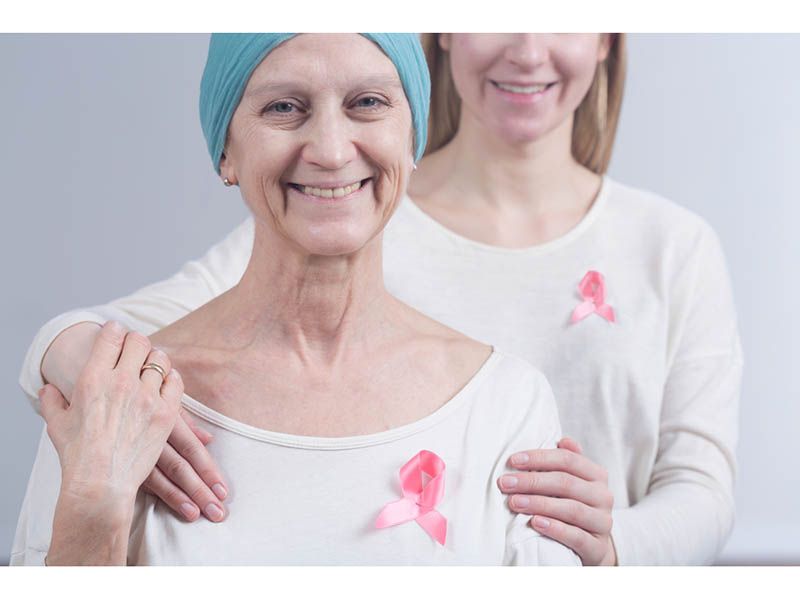MONDAY, Jan. 11, 2021 (HealthDay News) — Could a cancer diagnosis sometimes produce positive life changes? In a new study, many people with colon cancer, even in advanced stages, believed their diagnosis had brought some beneficial effects to their lives.
In surveys of 133 colon cancer patients, researchers found that nearly all — 95% — said their lives had benefited in some way since their diagnosis. Often, they felt their family relationships had strengthened, or they were better able to “take things as they come” and feel grateful for each day.
That was the case whether people were in an earlier stage of the disease or had metastatic cancer — meaning it had spread to distant sites in the body.
In fact, the study found, no medical factors seemed to influence patients’ capacity for “benefit finding.”
On the other hand, that ability to see a “silver lining” did not buffer people against feeling anxious, sad or otherwise distressed.
While that might seem counterintuitive, experts said it actually makes sense.
People can simultaneously see the positives in their lives, and be distressed by dealing with a cancer diagnosis, said lead researcher Lauren Zimmaro, a senior postdoctoral associate at Fox Chase Cancer Center in Philadelphia.
Benefit-finding, she said, is about finding meaning in the midst of difficulties, and not “putting a positive spin on things.”
“It’s more realistic than that,” Zimmaro said.
Allison Applebaum, an assistant attending psychologist at Memorial Sloan Kettering Cancer Center in New York City, made a similar point.
“We as humans are complex, and the experience of multiple, potentially conflicting emotions at one time is normal,” said Applebaum, who was not involved in the study.
“For many,” she said, “the experience of cancer — of any site or stage — is one that leads to a re-evaluation of values, life goals and priorities.”
But that process does not negate negative emotions. “One can certainly feel very anxious about the future or sad about current illness and related limitations, and still feel grateful,” Applebaum said.
The study, recently published online in the journal Supportive Care in Cancer, involved 133 patients being treated for colon cancer at one hospital, half of whom had metastatic disease.
At the outset and six months later, the patients completed standard questionnaires on benefit-finding and psychological distress.
The benefit-finding questions were bigger-picture, asking whether the diagnosis had “led me to be more accepting of things,” for example. The questions on distress asked people how they were currently feeling.
Nearly all patients, the study found, reported they’d experienced at least one benefit since their diagnosis. And on average, that belief strengthened over the six-month study.
There was no evidence, though, that it protected against psychological distress.
It’s possible that’s partly because the patients, on the whole, reported relatively low distress levels. That makes it harder to see an effect, according to Dr. Marleen Meyers, founding director of the Cancer Survivorship Program at NYU Langone Health’s Perlmutter Cancer Center in New York City.
But she also agreed that seeing cancer’s silver lining would not necessarily buffer people from the “existential stress” of the diagnosis, or daily stresses, like trying to maintain a job and pay the bills.
“The cancer stress is very real and ubiquitous,” Meyers said. “And while parts of the cancer experience can be mitigated by benefit-finding, it is understandable that the anger, fatigue and helplessness … of a cancer diagnosis supersede this.”
But even if benefit-finding does not lessen those negative emotions, it is still positive in and of itself. And Applebaum said it can be encouraged during cancer care.
Research at Sloan Kettering, she said, has shown that even brief interventions “can assist patients with advanced, life-limiting cancers to connect to a sense of meaning and purpose, to experience benefit-finding or post-traumatic growth.”
That is not say that people with cancer “should” feel any particular way, the experts stressed.
“It’s OK to feel distressed. It’s normal and natural,” Zimmaro said. “It’s also OK to feel that you’ve grown.”
If people do want help for their distress, though, they should get it, Zimmaro said.
Applebaum said most cancer centers — including smaller community centers — have some type of mental health service. There are also community resources, like services run by the American Cancer Society.
A silver lining of the pandemic, Applebaum said, is that telemedicine has actually made mental health services more accessible to many cancer patients. Historically, the time, travel and cost of in-person sessions have been barriers, she noted.
More information
The American Cancer Society has more on cancer and mental well-being.
SOURCES: Lauren Zimmaro, PhD, senior postdoctoral associate, Fox Chase Cancer Center, Philadelphia; Allison Applebaum, PhD, assistant attending psychologist, director, Caregivers Clinic, Memorial Sloan Kettering Cancer Center, New York City; Marleen Meyers, MD, founding director, Cancer Survivorship Program, Perlmutter Cancer Center at NYU Langone Health, and clinical associate professor, NYU Grossman School of Medicine, New York City; Supportive Care in Cancer, Sept. 11, 2020, online
Copyright © 2025 HealthDay. All rights reserved.

